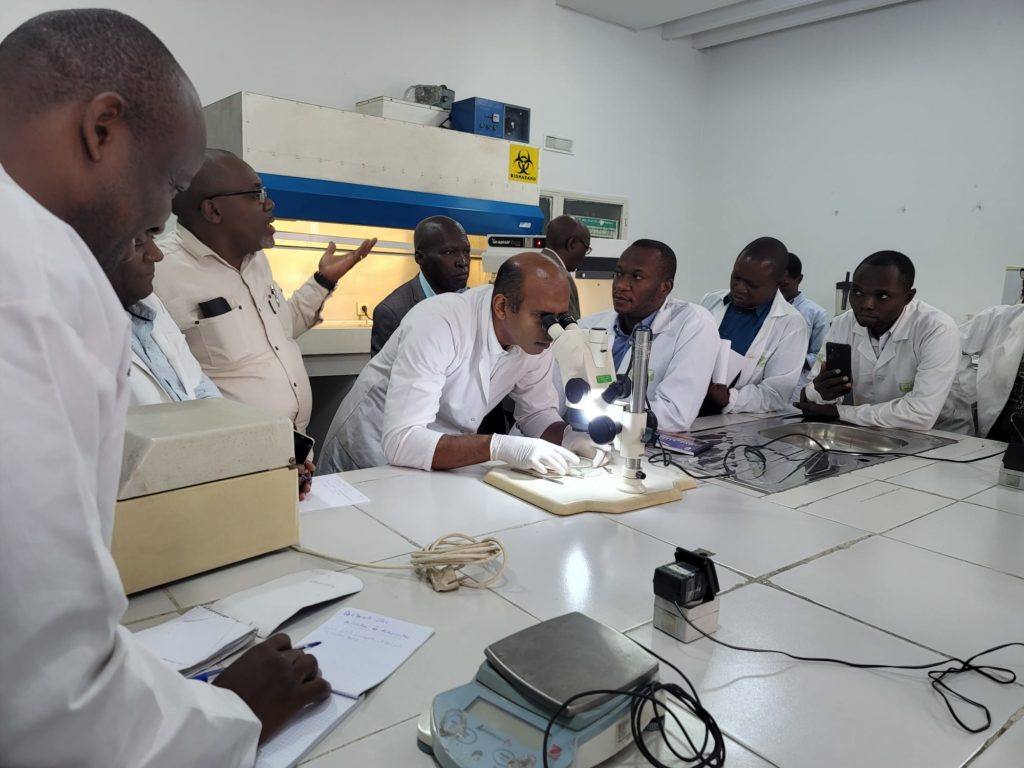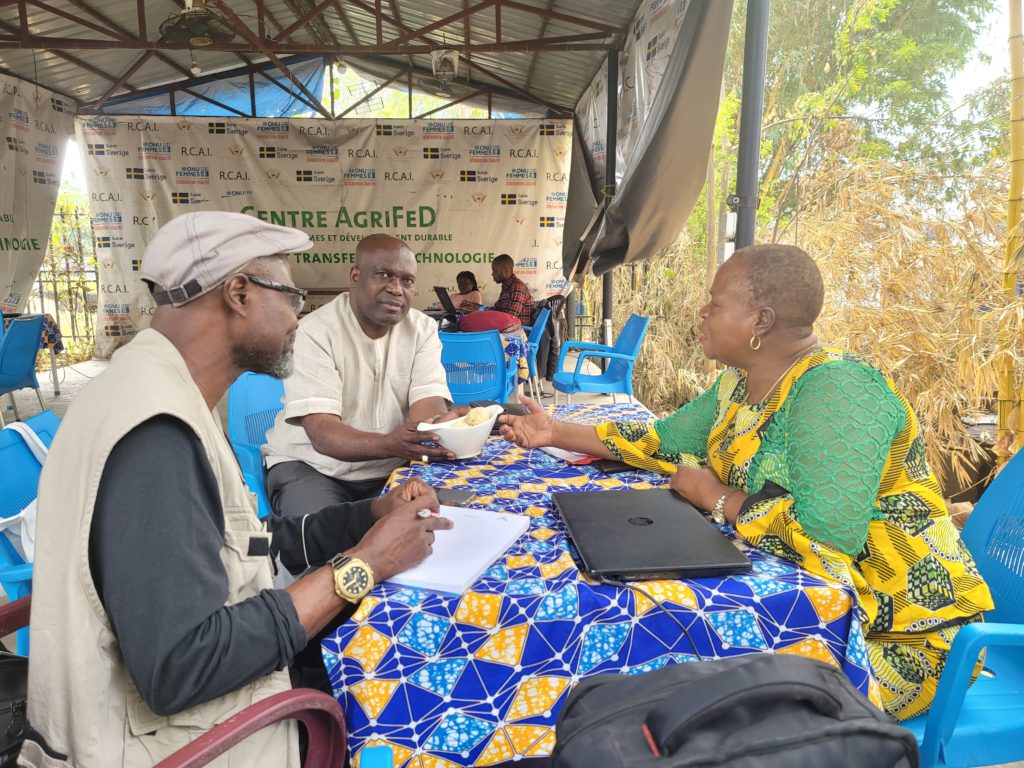The University of Maryland Eastern Shore (UMES) Current and Emerging Threats to Crops (CETC) – Innovation Lab’s (IL) funded activities focus on two countries: the Democratic Republic of Congo (DRC) and Kenya. While in the DRC, the program investigates current and emerging threats to cassava and banana plantain, the Kenyan program looks at maize and mango postharvest loss reduction strategies to increase food security and employment of women and youth in Kisumu, Siaya, and Kitui Counties of Kenya.

In July 2022, two scientists, Dr. Stephan Tubene and Dr. Sadanand Dhekney, both from UMES conducted a training of 30 Congolese scientists selected from various Congolese institutions including the Plant Clinic International (PCi), the National Institute for the Study and Agronomic Research (INERA), the University of Kinshasa (UNIKIN), the National Pedagogic University (UPN), and the Ministry of Agriculture (MINAGRI) at the Plants Clinic Lab in Kinshasa, DRC.
Organized in partnership with INERA and PCi, this capacity building training program covered several aspects of the current and emerging threats to crops including “Techniques for Viral Pathogen Testing and In Vitro Culture for Large-Scale Propagation of Clean, Disease-Free Tropical Crop Species (Dr. Dhekney) and Writing a Wining Proposal and the Importance of genuine partnerships with International Institutions (Dr. Tubene).” These lectures were immediately followed by laboratory’s hands-on activities at the Plants Clinic Lab. The same workshop was also given the following day at the INERA Mvuazi’s facilities, located at 150 Km from Kinshasa, the capital city. The only difference was that the Mvuazi’s presentations were not only followed by lab demonstrations but also by research farms visits (banana plantain and cassava) with disease detection, monitoring, and control demonstrations in the field.
While in his opening remarks, Dr. Jacques Lutaladio, the INERA Director General, explained the significance of the workshop in the context of the current global economic challenges created in part by the inflation and the Russia-Ukraine war. The world is experiencing food supply shortage and the DRC is not an exception. Therefore, the technologies being taught during this workshop should be applied in the field in order to improve the agricultural productivity in DRC said Dr. Lutaladio; Ir. Damas Mamba, Director of Plants Protection at MINAGRI, on the other hand in his closing remarks demonstrated the importance of such a workshop in a time like this and Dr. Stephan Tubene’s dedication through the Center of Excellence to the improvement of the food security in DRC. Such a training must be taken seriously by utilizing learned skills throughout your career said Director Mamba.
Another theme of the capacity building training program consisted of investigating marketing strategies utilized by smallholder farmers in the Kongo Central province in order to facilitate intra and inter-provincial trade. This objective was achieved through outreach programs organized by INERA scientists and the U.S. delegation in Kisantu along the Inkisi River whereby smallholder farmers growing vegetables were advised to take advantage of their current cooperative status to negotiate better prices through marketing contracts with buyers including super markets, government institutions, etc. They were also advised to buy materials and equipment (i.e., irrigation materials, composting, improved seeds, fertilizer, etc.) in bulk for the benefits of their members.

The training program outcomes were: better understanding of pests/diseases detection; the necessity of using certified, diseases-free planting materials; the urgency of establishing a repository of local germplasm; cassava and banana plantain tissue culture demonstrations; and a better understanding of marketing strategies including the role of farmers’ cooperative.
The overall take home message for these workshops underscored a dire and critical need to establish a National Clean Plants Network for important asexually propagated crops in DRC. Such a network would be crucial in testing new and existing plant germplasm for the detection and characterization of viruses, viroids and phytoplasma pathogens. Infected plant germplasm would be subjected to in vitro culture techniques for virus elimination and establishment of disease-free foundation blocks. Such blocks would be a feeder source for clean planting materials to nurseries and farmers in the respective regions.

